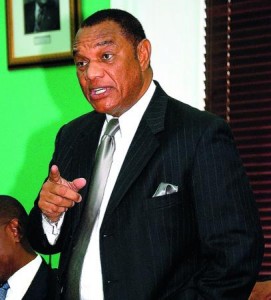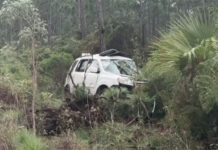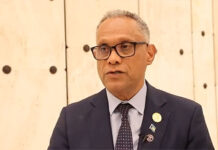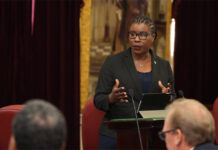
DATED: November 14, 2012
Nassau, Bahamas – The following is a Communication by the Right Honourable Perry G. Christie, Prime Minister and Member for Centreville on the Referendum on National Lottery and Web Shop Gaming:
Mr. Speaker,
I ended my communication to Parliament on November 1st, 2012, stating that further announcements regarding the national referendum on gaming would be made as events may warrant.
Last night, I informed the country via the media of my Government’s decision to postpone the referendum to the 28th January, 2013. In announcing that decision, I said that:
“I am a Prime Minister who listens. And in listening to the still evolving public discourse on the forthcoming referendum it has become clear to me that more time is needed before the Bahamian people are called upon to vote.
“I am supported in this view by the leadership of a broad cross-section of the national community with whom I have been consulting over the past few days.
“I have therefore decided, with the full support of my cabinet colleagues, to postpone the referendum until the 28th January, 2013.
This will allow sufficient time to facilitate the widest possible dialogue on the referendum issues and the dissemination of information on those issues.”
In my statement to the media last night, I also advised that my Government had re-considered the question of a national lottery and was now of the view that it should be brought within the scope of the referendum as well.
I reiterated last night that my Government’s gaming advisors had initially advised that a National Lottery would not be financially viable having regard to the small size of the Bahamian population and the competition which would be experienced from the proximity of The Bahamas to the United States with its huge lottery jackpots.
My Government has nonetheless decided to bring the question of a national lottery within the scope of the pending referendum. My Government believes that this would be in the interests of a deepening of our democracy and consistent with its Charter for Governance.
Later this morning my Government will introduce and have read a first time a Bill that will deal with the legal framework for the referendum on web shop gaming and a national lottery. This Bill will amend “The Constitutional Referendum Act” to introduce special provisions for the holding of referenda of a non-constitutional nature, such as the forthcoming referendum on web shop gaming and a national lottery will be.
As the Act will henceforth apply to all types of referenda, both constitutional and non-constitutional, the title of the Act will be changed from the “Constitutional Referendum Act” to “The Referendum Act”.
The Bill that will be introduced this morning will also make provision for the modification of the Parliamentary Elections Act in relation to non-constitutional referenda. It will empower the Minister to make regulations so as to ensure that the machinery, forms, procedures and protocols that apply to
Elections are adapted to a referendum in a way that is not only appropriate but consistent with the requirements of fairness, integrity and transparency that we have come to expect in relation to the exercise of the voting franchise.
It is the Government’s intention that the Bill should become law before year’s end so as to ensure that the applicable timelines are put in train in preparation for a January 28th referendum.
I am satisfied that the Bill that will be introduced this morning will put to rest such concerns or questions as there may be in the country as to the correctness of the framework and machinery that will be employed in the referendum.
Mr. Speaker:
I will now address a number of other important aspects of this matter.
Firstly, I re-affirm that should the Referendum produce an affirmative vote, my Government intends to promulgate a regime for the stringent regulation and taxation of web shop gaming operations. All operators will be required to meet internationally recognized standards in order to be licensed.
I wish to point out the following for the record:
Large and ever growing numbers of Bahamians and other residents have been engaged in the playing of “numbers” for many years, especially with the advent and proliferation of web shop cafes throughout The Bahamas in recent years.
These web shops are licensed under the Business Licence Act and according to the records of the Ministry of Finance and information volunteered by some of the larger web shop operators, their economic impact and contribution to the local economy is very significant as shown by the following:
BENEFIT CONTRIBUTION TO LOCAL ECONOMY
Employment The web shops employ an estimated four thousand persons with the potential to employ a lot more once the industry is legalized.
Payroll The annual staff payroll is over $15 million.
NIB Contributions Contributions in excess of $1 million are made annually on behalf of employees of the gaming industry.
Construction Buildings erected and capital
improvements carried out represents over $33 million with even more likely in a legalized environment.
Business License Over $100 thousand is paid annually in license fees.
Sponsorships/Donations Over $5 million is spent on donations and sponsorships annually.
Utilities/Operating Almost $9 million is spent annually on Expenses utilities and other operating expenses.
If the web shop operations were to be regularized, it is contemplated that a cash bond of not less than one million dollars would be paid by each licensee and annual tax of up to 15% on the gross sums wagered. This should yield, using conservative estimates, not less than $15-20 million annually to the Public Treasury. According to other estimates, however, the annual tax intake may be closer to twice that amount, depending on what the professionally audited financial statements of the web shop operators reveal to be the true gross wagers taken in.
The previous FNM administration through the Ministry of Finance was well advanced in the preparation of a regime for the legalisation of web shop gaming. Indeed they were in close consultation with the web shop operators on the best way forward, and had even reached the stage of reviewing legislative models for the regulation of web shop gaming. It is important, in my view, that this historical reality be borne in mind in relation to the public discourse that is now underway so that the public can be assisted in identifying those political figures who are talking out of both sides of their mouths on this issue, for reasons that are transparently opportunistic.
In instituting a national lottery, and in regularizing and taxing web shop gaming in The Bahamas, the Government of The Bahamas would be following the lead of other countries in the Region, the Americas, Europe and internationally. In addition, however, the Government is strongly of the opinion that it must move resolutely to adopt appropriate and strict anti-money laundering and counter terrorism procedures in line with Bahamian law and international standards.
It would be helpful for public informational purposes for me to make some comments regarding the advice received to date from our international gaming advisors, who have been advising successive Governments of The Bahamas for more than 30 years, as well as such well regulated and notable jurisdictions as the United Kingdom and Singapore.
Status of web shops
The provision of gaming in any form to Bahamian citizens is illegal unless a certificate of exemption has been granted under the Lotteries & Gaming Act (as is the case, for example, with church raffles and the like). Web shops, however, have no such exemptions
The web shop operators are unable to secure bank accounts for their businesses as they do not satisfy the relevant anti-money laundering rules
There are concerns regarding the way in which the cash generated from the business is legitimized.
The web shops are used to facilitate the transmission of funds between individuals resident on different Islands in direct contravention of the relevant banking and anti-money laundering rules
8. Risks to The Bahamas
Continued operation of the web shops in the manner outlined leaves The Bahamas exposed to international scrutiny and sanctions for failure to implement anti-money laundering rules. This position is not acceptable and needs to be addressed without further delay. It has been ignored for too long.
9. Options for the Government
The options are simple – to close down the web shops or to regularize them within the framework of stringent regulatory standards and taxation.
10. A national lottery
At this stage there has been no detailed feasibility study in relation to a National Lottery. Our consultants were asked to consider the broad implications of introducing a National Lottery in conjunction with advising the Government on a number of different matters.
Most successful lotteries are run by commercial organisations rather than by Government.
Commercial organisations clearly need to be able to see an appropriate level of return before they commit to the necessary investment.
The demographics and geography of The Bahamas make the case for a commercial lottery very challenging. Factors militating against it include:
Close geographical location to the US – the majority of other small island lotteries have much less easy access to the US.
easy access to enormous jackpots which can be secured from the Florida State lottery and other US lotteries in the US.
the comparatively small population of The Bahamas.
These three factors make if more likely that if a Bahamian citizen has $5 to spend on buying lottery tickets they are more likely to chose to spend it in the US to give themselves a chance of winning a large jackpot.
Moreover, the spread of small pockets of the Bahamian population on the Family Islands means that the infrastructure required to set up a properly regulated national lottery would be higher than would be the case for the equivalent population located on only one island.
Based on these facts the advisors initially recommended, albeit provisionally, that the issue of a National Lottery needed more consideration before inclusion in the referendum.
However, as I indicated earlier in this communication, it is clear from the public discourse on this matter that the Bahamian people wish to consider this point and the scope of the referendum has been enlarged accordingly.
The mechanism for introducing a commercially run lottery would be to put the appropriate legislation in place in the event of a YES vote and then to invite tenders from commercial lottery operators to set out the basis on which they would operate the lottery.
The invitation to tender would provide flexibility to potential operators to operate the lottery in the most beneficial way so as to maximise returns to the government / good causes, players and the operator – whist maintaining all of the appropriate protections for players.
The option remains on a YES vote for the Government to promote and operate a national lottery itself, with appropriate input from external providers. Such a state-sponsored national lottery might even be based on the principle of widely-held public ownership such that thousands of ordinary Bahamians, by subscribing for shares, through the familiar mechanism of an IPO, would have a direct equity stake in the national lottery.
11. Regulating the web shops and a National Lottery
Regulation will be focused on delivering the core objectives:
All gaming activities should be licensed and regulated.
All gaming activities should be undertaken fairly with appropriate player protections
Operators of gaming activities should pay their fair share of tax
Gaming operators should adopt and be held accountable for rigorous compliance with strict anti-money laundering and counter terrorism procedures and protocols in line with Bahamian law and international standards.
12. The appropriate regulator
The regulator would be Gaming Board but there would need to be significant changes to the current structure of the Board to ensure that it can deliver the licensing objectives. Further investment will be required in technology, and arrangements will need to be put in place with external testing houses to verify the integrity of the electronic games hosted by web shops. The web shop industry will be expected to contribute to this additional cost of regulation.
13. Issues specific to the web shops
1. There will also need to be some “grandfathering” provisions included in the law and regulations if the result of the referendum is YES. The objective of licensing is for operators to run a well regulated business which provides appropriate player protections and complies with anti-money laundering and anti-terrorism laws. Licensed web shops will be required to comply with all relevant laws once they are licensed.
The “grandfathering” provisions will, however, provide no guarantee that a licence will be awarded. Rather, existing operators will have to prove that they have conducted their gaming operations with integrity and fairness towards consumers, and, moreover, that they have the financial capacity and organizational structure to meet the high regulatory standards that will be demanded of them.
2. The issue of licences for web shop operators would be conducted in similar manner to the licences issued by the Gaming Board for land based casinos. This includes the appointment of an independent Board, rigorous investigation of operators and their employees, and input from external regulatory consultants from outside The Bahamas who will make a recommendation to the Gaming Board on the suitability of each applicant.
3. The taxation regime and level of charges for licences for the web shops would be a combination of a flat rate tax, licence fees and a cash bond. Further details will be provided in due course.
The choice, therefore, is whether we will regularize, regulate, and appropriately tax the web shop industry or whether the industry will have to be dismantled with the full weight of the law being brought against operators and patrons alike, and with the significant dislocation that would inevitably ensue from the mass unemployment of web shop personnel and the loss of the other economic contributions now being made by the web shop industry.
Mr. Speaker,
In conclusion, my Government pledges to ensure a free and fair national referendum in which the Bahamian electorate will exercise their democratic right to freely vote on the question of web shop gaming and a national lottery. It is for the Bahamian people to decide. My Government will respect, honour and abide by the result of the Referendum, be it Yes or No to the question of web shop gaming and a national lottery.







